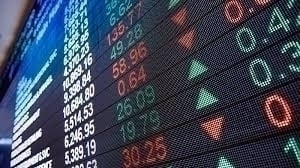Publisher: Maaal International Media Company
License: 465734
Tesla shares lose $50 billion in one day
Tesla shares fell 5.6% in Thursday’s session to their lowest levels in more than 4 months, causing the company to lose $50 billion in market value in one day.
With these losses, Tesla shares return to levels before Trump’s victory in the US presidential election was announced.
These losses come after brokerage Baird described the electric car maker as a “new bearish pick” and lowered its price forecast for the stock to $370 from $440.
اقرأ المزيد
Analysts warned of weak sales for the electric car maker during the first quarter, as they will be less than market expectations.
In contrast, Marvell shares fell 20% in Thursday’s session, incurring its biggest daily loss in more than 20 years, despite the chipmaker announcing quarterly results that were above expectations.
After the results were announced, analysts doubted the company’s ability to achieve good performance due to its reliance on a small number of customers, in light of the intense competition from Asian companies.
Major US indices closed with collective losses on Thursday amid uncertainty over US trade policy.
President Donald Trump announced on Thursday that goods from Canada and Mexico covered by the US-Mexico-Canada Agreement (USMCA) would be exempt for a month from the 25% tariffs imposed earlier this week.
The development comes a day after Trump exempted autos from the tariffs.
Trump had previously only mentioned exempting Mexico, but later signed an amendment to his order that now includes Canada as well.
On the economic front, the number of Americans filing new claims for unemployment benefits fell more than expected last week. Investors will be watching for more comprehensive payroll data on Friday.
Traders now see the Federal Reserve cutting borrowing costs by 25 basis points for the first time this year in June.
The Dow Jones Industrial Average fell 1%, or 427 points, on Thursday to close near a 7-week low.
The S&P 500 fell 1.8% to close at a four-month low.
The Nasdaq Composite dropped 2.6% to close at a five-month low and officially enter correction territory after losing more than 10% since its peak on Dec. 16.
The Chicago Board of Trade’s volatility index, known as the fear gauge, rose 13% to its highest close since Dec. 18.
Related








